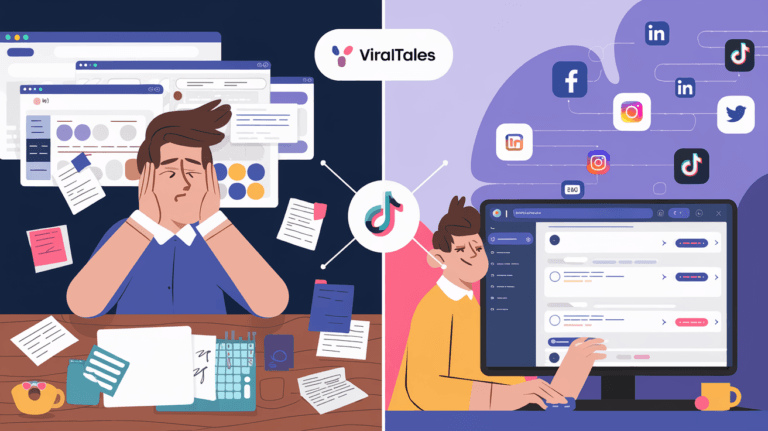Top Mistakes to Avoid When Starting an Online Business

So you want to start an online business? Join the club! I remember sitting at my kitchen table back in 2015, fueled by nothing but coffee and dreams, convinced I was about to build the next big thing. Fast forward three months and I was staring at an empty website with exactly zero sales. Ouch.
That first failed online business taught me more than any success ever could. And since then, I’ve launched four more online businesses (three successful, one… let’s call it a “learning experience”) and helped dozens of clients avoid the same painful mistakes I made starting out.
Let me save you some headaches (and a ton of wasted money) by sharing the biggest pitfalls I’ve seen when starting an online business.
Neglecting Market Research
This one still makes me cringe because it was my first and biggest mistake. I built an entire e-commerce store selling specialty coffee equipment without ever confirming if enough people actually wanted what I was selling.
Market research isn’t just some boring corporate exercise. It’s literally the difference between building something people want to buy versus something that collects digital dust.
How to Actually Do Market Research
Don’t worry, you don’t need expensive software or a marketing degree. Here’s my down-and-dirty approach:
- Lurk in online communities where your potential customers hang out (Reddit, Facebook Groups, forums, etc.)
- Pay attention to repeated questions or complaints – these are gold for product ideas
- Search for your idea on Google Trends to see if interest is growing or declining
- Check if people are actually searching for solutions to the problem you solve (use free keyword research tools)
- Analyze your competitors – if nobody’s selling something similar, that might actually be a BAD sign
The weirdest place I found amazing market insights? Amazon reviews for products similar to what I wanted to sell. The negative reviews especially showed me exactly what problems customers had that nobody was solving well.
Perfectionism Paralysis
My second business took FOREVER to launch because I kept tweaking the website design. And tweaking. And tweaking some more. I was so afraid of looking unprofessional that I never actually got the darn thing launched.
Your first version is going to be rough around the edges. That’s normal! What matters is getting something out there that you can improve based on real customer feedback.
The Minimum Viable Approach
Instead of trying to build the perfect business, focus on creating what’s called a “Minimum Viable Product” or MVP:
- Identify the core problem you’re solving
- Strip away everything that isn’t absolutely necessary
- Launch faster with just the basics
- Improve based on actual feedback, not your assumptions
I’ve seen businesses spend months building fancy features nobody ends up using. Meanwhile, the scrappy competitor who launched with a basic solution is already making sales and improving based on real customer input.
Remember: Done is better than perfect. Perfect is the enemy of profitable.
Ignoring the Money Part
I’m a creative at heart, so talking about money always felt a little… uncomfortable. But ignoring the financial side of your online business is like trying to drive cross-country without checking your gas tank.
So many passionate entrepreneurs pour their hearts into building something without ever running the numbers to see if it can actually be profitable.
Financial Reality Checks
Before you go all-in on your business idea, ask yourself:
- What are ALL the costs involved? (hosting, software, inventory, advertising, etc.)
- What’s a realistic conversion rate for your industry?
- How many customers do you need to be profitable?
- How much will customer acquisition cost?
- Do the unit economics actually work? (revenue per customer vs. cost to acquire and serve them)
One of my clients was losing money on every sale because she hadn’t factored in the true cost of shipping and returns. She was so focused on building her brand that she missed the basic math showing her business model was fundamentally flawed.
Trying to Do Everything Yourself
This was my personal kryptonite. I’m pretty tech-savvy and figured I could handle everything from website development to marketing to customer service. Big mistake.
Just because you CAN do something doesn’t mean you SHOULD. Every hour you spend struggling with tasks outside your expertise is an hour not spent on the things that actually move your business forward.
What to Outsource First
When you’re starting out with limited funds, focus on outsourcing:
- Technical tasks that have a steep learning curve (like complex website customizations)
- Repetitive admin work that eats up your time
- Specialized skills where quality really matters (like copywriting or graphic design)
I eventually hired a part-time virtual assistant for about 10 hours a week, and it completely transformed my productivity. She handled customer emails, basic social media, and order processing, which freed me up to focus on marketing and product development—the things that actually grew the business.
Underinvesting in Your Website
I know, I know. You want to keep costs low when starting out. But your website is literally your digital storefront, and first impressions matter A LOT.
I’m not saying you need to spend thousands on a custom design. But I’ve seen too many promising businesses fail because their websites looked sketchy or confusing.
Website Essentials Worth Investing In
At minimum, make sure you have:
- A professional domain name (not yourcompany.wixsite.com)
- Mobile-friendly design (over 60% of online shopping happens on phones now)
- Clear navigation that helps visitors find what they need
- Fast loading speeds (people abandon slow sites in seconds)
- Streamlined checkout process if you’re selling products
My third business had a much faster path to profitability simply because I invested in better product photography and a cleaner website design. It immediately conveyed more trust, and our conversion rates were almost 3x higher than my previous venture.
Neglecting Email Marketing
Social media is flashy and fun, but email marketing is still the highest ROI marketing channel for most online businesses. I made the classic mistake of focusing all my energy on Instagram, only to realize I was building on rented land.
When Instagram changed their algorithm, my reach plummeted overnight. Meanwhile, my friend who had been diligently building an email list had direct access to her audience anytime she wanted.
Email List Building Basics
Start collecting emails from day one with:
- A compelling lead magnet (free guide, discount code, quiz results, etc.)
- Strategic pop-ups that appear at the right moment (not immediately!)
- A regular newsletter that delivers actual value (not just promotions)
- Automated welcome sequences that nurture new subscribers
Email marketing feels old-school, but it works incredibly well when done right. My most successful online business now generates about 68% of our total revenue from email campaigns. Not exactly something to ignore!
Inconsistent Content Creation
Content marketing is a marathon, not a sprint. I’ve watched countless online businesses start blogs or YouTube channels with great enthusiasm, post a few times, then disappear for months when they don’t see immediate results.
Consistency beats perfection and volume almost every time. Your audience needs to know they can count on you showing up regularly.
Sustainable Content Strategy
Instead of aiming for daily content:
- Start with a realistic posting schedule you can actually maintain
- Batch create content when you’re feeling motivated
- Repurpose core content across multiple platforms
- Focus on solving specific problems for your audience
My most successful content marketing effort was a simple weekly email that answered one customer question in depth. It wasn’t fancy, but it was consistent, and over time it built tremendous trust with our audience.
Skipping the Legal Stuff
The boring legal and administrative tasks are so easy to put off… until they come back to bite you. Ask me how I know! (Hint: it involved an unexpected letter from a lawyer and a very stressful week).
Legal Basics You Shouldn’t Ignore
At minimum, make sure you have:
- Proper business registration appropriate for your situation
- Website terms of service and privacy policy
- Compliance with data protection regulations (like GDPR or CCPA)
- Proper payment processing and tax collection setup
- Any necessary licenses or permits for your specific industry
You don’t need to go overboard with expensive lawyers when starting out. There are affordable template services that can help you get the basics in place. Just don’t skip it entirely.
Avoiding Analytics and Metrics
When my first business failed, I had no idea WHY it failed because I wasn’t tracking anything. I was flying completely blind, making decisions based on gut feelings rather than data.
You don’t need complicated analytics, but you do need to know some basic numbers in your business.
Essential Metrics to Track
At minimum, keep an eye on:
- Website traffic sources (where are visitors coming from?)
- Conversion rate (what percentage of visitors take your desired action?)
- Customer acquisition cost (how much do you spend to get a customer?)
- Average order value (how much does the typical customer spend?)
- Retention/repeat purchase rate (do customers come back?)
Once I started actually looking at these numbers regularly, I spotted issues and opportunities I would have completely missed otherwise. For example, I discovered that customers who purchased one specific product were 3x more likely to become repeat buyers, which completely changed our marketing focus.
Final Thoughts: Learn From Others’ Mistakes
Starting an online business is hard enough without making all these mistakes yourself. Trust me, I’ve made plenty of them so you don’t have to!
The good news is that it’s never been easier or cheaper to start an online business. The tools available today are incredible compared to when I started. But the fundamentals of business success haven’t changed: solve a real problem, create value for customers, and build systems that work even when you don’t.
What questions do you have about starting an online business? Drop them in the comments below, and I’ll do my best to share what I’ve learned from my own successes and failures!
Disclosure: This post contains affiliate links. If you make a purchase through these links, I may earn a small commission at no extra cost to you.







One Comment